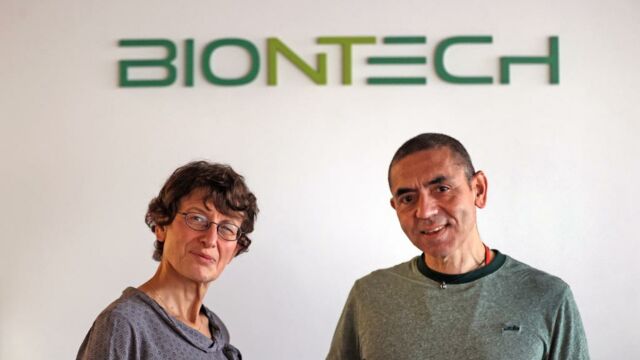The cure for cancer could come sooner than expected. The Turkish-German couple who worked with Pfizer to develop a Covid-19 vaccine say cancer patients may be able to access vaccines by 2030. The scientist pair are basing these projections on breakthroughs made while manufacturing Covid vaccines.
Discover our latest podcast
Knowledge transfer
The pair, Uğur Şahin and Özlem Türec, are co-founders of BioNTech which partnered with Pfizer to use mRNA technology for the development of a vaccine against Covid-19. Now, they believe this technology could be repurposed to attack cancer cells, according to the Guardian.
Speaking on the BBC’s Sunday with Laura Kuenssberg, the two scientists are hopeful they can apply the technology to help treat melanoma, bowel cancer and other tumour types. Prof Türeci explained how they hope this might work:
mRNA acts as a blueprint and allows you to tell the body to produce the drug or the vaccine… and when you use mRNA as a vaccine, the mRNA is a blueprint for the 'wanted poster' of the enemy - in this case cancer antigens which distinguish cancer cells from normal cells.

Cautious optimism
The German-based company currently has several cancer vaccines at different stages of clinical trials. In one such trials, patients are given a personalized vaccine to nudge their immune system to attack the disease.
Prior to the Covid-19 pandemic, BioNTech was working on mRNA cancer vaccines, but had to put that on hold to work on a vaccine for the novel coronavirus. Prof Türeci said the development and success of the Pfizer/BioNTech vaccine, ‘gives back to our cancer work’.
Every step, every patient we treat in our cancer trials helps us to find out more about what we are against and how to address that. As scientists, we are always hesitant to say we will have a cure for cancer. We have a number of breakthroughs and we will continue to work on them.
Sources used:
BBC: BioNTech: Could Covid vaccine technology crack cancer?
Cosmopolitan: A new cancer vaccine could be ready by 2030
The Guardian: Vaccines to treat cancer possible by 2030, say BioNTech founders
Read more:
⋙ Covid-19 Pfizer vaccine: Woman gets painful lesions on tongue, unable to eat for months
⋙ New inhaled Covid-19 vaccine backed by WHO could be more effective than the jab
⋙ Pfizer study finds its Covid-19 vaccine is 'effective' on children 'with 3 doses', sparking debate















